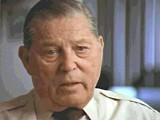You searched for: 外贸公司网络推广方案【TG飞机:@bapingseo】北京seo优化【TG电报:@bapingseo】广州外贸企业谷歌优化【Telegram:@bapingseo】麋鹿棋牌入口王者荣耀押注亚博网址进入足彩2串1倍投计划表?C8ug8L/xX30R8.html
<< Previous | Displaying results 626-650 of 848 for "外贸公司网络推广方案【TG飞机:@bapingseo】北京seo优化【TG电报:@bapingseo】广州外贸企业谷歌优化【Telegram:@bapingseo】麋鹿棋牌入口王者荣耀押注亚博网址进入足彩2串1倍投计划表?C8ug8L/xX30R8.html" | Next >>
-
Battle of the Somme
Timeline EventJuly 1, 1916. On this date, the most causalities in a single day during World War I occurred at the Battle of Somme.
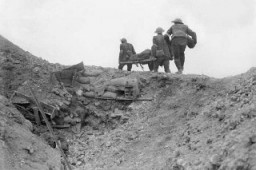
-
Law on Alteration of Family and Personal Names
Timeline EventAugust 17, 1938. On this date, the German government issued the Executive Order on the Law on the Alteration of Family and Personal Names.
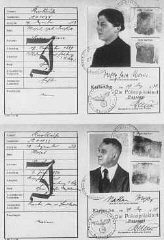
-
German Jews' Passports Declared Invalid
Timeline EventOctober 5, 1938. On this date, the Reich Ministry of the Interior invalidated all German Jews' passports and required them to have a "J" stamped on them.
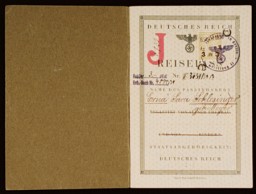
-
Adolf Eichmann Found Guilty
Timeline EventDecember 15, 1961. On this date, Adolf Eichmann was found guilty of crimes against the Jewish people and sentenced to death.
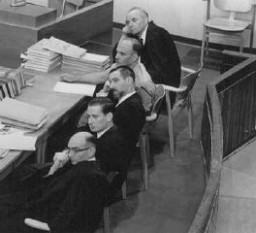
-
The 42nd Infantry Division during World War II
ArticleThe 42nd Infantry Division participated in major WWII campaigns and is recognized for liberating the Dachau concentration camp in 1945.
-
Collections Highlight: Auschwitz Through the Lens of the SS
ArticleKarl Höcker created a personal album of photographs chronicling SS officers’ activities at Auschwitz. Learn about this chilling collection.
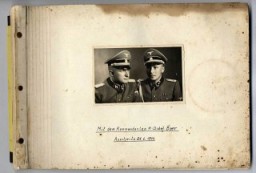
-
Auschwitz Through the Lens of the SS: The Album
ArticleLearn about photographs contained in Karl Höcker’s album depicting official visits, ceremonies, and the social activities of the Auschwitz camp staff.
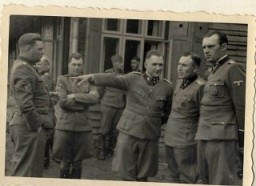
-
Welek Luksenburg
ID CardWelek grew up in Dabrowa Gornicza, an industrial town in western Poland. His father, Simcha, was a wholesale meat merchant and his mother, Rozalia, served as president of the local chapter of the Women's International Zionist Organization. Welek's older brother, Szlomo, was a dentist. The Luksenburgs were among the several thousand Jews who lived in Dabrowa Gornicza. 1933–39: Like many other children in the town, Welek attended public school. Because his family was very religious, he did not attend…
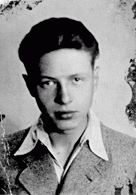
-
Abraham Bergman
ID CardAbraham was born to a Jewish family in Krasnik, a town in the Lublin district of Poland. The town had a large Jewish population. Abraham's father was a tailor. When Abraham was 2, his mother died and he was raised by his grandmother. At the age of 7, Abraham started public school. 1933-39: Abraham liked school but found it difficult. The Christian children often yelled at the Jews, "You killed our God." One year, on the day before Christmas break, some kids brought ropes tied to iron weights to school.…
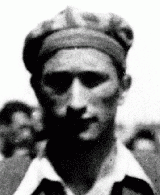
-
Walter Szczeniak
ID CardWalter was the oldest of eight children born to Polish-Catholic immigrant parents in a town near Boston, Massachusetts. The family moved back to Poland when Walter was a child, and lived on a family farm near Ostroleka in northern Poland that Walter's mother had inherited. Because his father's American nickname was "Stetson," Walter was mistakenly registered as "Charles Stetson" on his American birth certificate. 1933-39: After Walter completed secondary school, his father sent him to the University of…
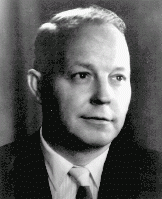
-
Elias (Elya) Grosmann
ID CardElias was born in a small town in the hill country of northeastern Slovakia. His family was Jewish, and he grew up in a religious home in which both Yiddish and Hungarian were spoken. His father was a peddler and his mother ran a small general store. Besides attending public schools, Elias received a formal Jewish education and attended Medzilaborce's rabbinical academy. 1933-39: The townspeople were mostly Jewish and worried about Nazi Germany. The German annexation of Austria in March 1938 alarmed them.…
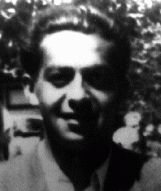
-
Elsa (Eliska) Skutezka Kulkova
ID CardElsa was the eldest of three children born to Jewish parents in Brno, the capital of Moravia, where her father ran a successful shipping company. In 1920 she graduated from a German-language secondary school. She married and moved to Bratislava, but the marriage was unsuccessful and Elsa returned to Brno in 1926, where she opened a millinery business. 1933-39: On May 24, 1933, Elsa married Robert Kulka and the couple settled in Robert's hometown of Olomouc. Their son, Tomas, was born a year and a day…
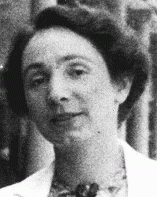
-
Lidia Lebowitz
ID CardThe younger of two sisters, Lidia was born to Jewish parents living in Sarospatak, a small town in northeastern Hungary. Lidia's parents owned a successful dry goods business. At the time, ready-made clothes were still rare in the countryside. Townspeople and local farmers would purchase fabric at the Lebowitz store and then take it to their tailor or seamstress to be sewn into clothes. 1933-39: Lidia was 2 when her Aunt Sadie, who had immigrated to the United States many years earlier, came to visit…
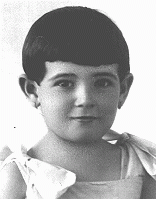
-
Ema Schwarzova Skutezka
ID CardOne of two children born to religious Jewish parents, Ema was raised in the small Moravian town of Lomnice, where her mother ran a general store. In 1901 Ema married Eduard Skutecky, a regular customer at her mother's store. The couple settled in the city of Brno, where they raised three children. Eduard ran a shipping company. 1933-39: By 1933 Ema's three children were grown and had moved out. Four years later her husband passed away, and Ema moved in with her eldest daughter, Elsa. Elsa and her husband…
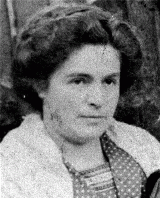
-
Siegfried Wohlfarth
ID CardThe elder of two sons of religious German-Jewish parents, Siegfried grew up in the city of Frankfurt. Upon completing his education, he became a certified public accountant in Frankfurt. In his free time he worked as a freelance music critic. While on a vacation in 1932 on the North Sea island of Norderney, he met Herta Katz, a young woman with whom he quickly fell in love. 1933-39: The Nazis had fired Siegfried from his government job because he was Jewish. Although his mother opposed the match,…
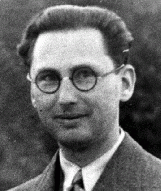
-
Karl Gorath
ID CardKarl was born in the small town of Bad Zwishenahn in northern Germany. When he was 2, his family moved to the port of Bremerhaven. His father was a sailor and his mother became a nurse in a local hospital. After his father died, Karl continued to live with his mother. Karl was 20 when he began training as a deacon at his parish church. 1933-39: Karl was 26 when his jealous lover denounced him and he was arrested at his house under paragraph 175 of the criminal code, which defined homosexuality as an…
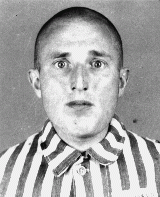
-
Franz Wohlfahrt
ID CardThe eldest of six children born to Catholic parents, Franz was raised in a village in the part of Austria known as Carinthia. His father was a farmer and quarryman. Disillusioned with Catholicism, his parents became Jehovah's Witnesses during Franz's childhood and raised their children in their new faith. As a teenager, Franz was interested in painting and skiing. 1933-39: Franz was apprenticed to be a house painter and decorator. After Nazi Germany annexed Austria in 1938, like other Jehovah's…
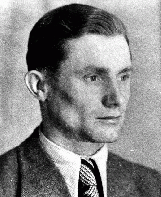
-
Renee Schwalb
ID CardVienna, home to some 175,000 Jews before World War II, was a major center of European Jewry. Vienna was also the intellectual heart of the Palestine resettlement movement. Most of the city's Jews lived in two large districts on the east side of the Danube Canal. Renee's father owned a prosperous men's clothing store in the city. 1933-39: German forces occupied Austria in March 1938. Anti-Jewish measures were quickly imposed. Renee's father was prohibited from doing business and his store was seized. He…
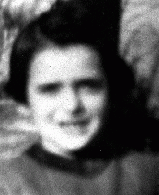
-
Frida Adler
ID CardFrida was the eldest of three daughters born to Jewish parents in a village in the easternmost province of Czechoslovakia. When Frida was 2, her parents moved to Liege, Belgium, a largely Catholic industrial city with many immigrants from eastern Europe. Frida attended Belgian public schools and grew up speaking French. 1933-39: In Liege Frida's family lived in an apartment above a cafe and across the street from a Catholic church. Frida had many Catholic girlfriends at school. At home she spoke Yiddish…
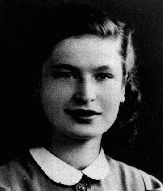
-
Lucien-Louis Bunel
ID CardLucien was the fourth of eight children born to poor Catholic parents in a small town in northwestern France. Lucien began his seminary studies in nearby Rouen at the age of 12. Following two years of military service, he resumed his religious studies in 1922 and was ordained as a priest three years later. He joined the Carmelite religious order in 1931, and became Father Jacques. 1933-39: In 1934 Father Jacques moved to the town of Avon, where he established a boys' school,…
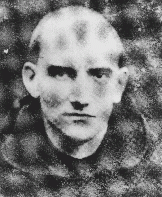
-
Morris Zaidband
ID CardMorris was one of five children born to a Jewish family in the Polish town of Oswiecim, 33 miles west of Cracow [Krakow]. Morris' father sold ladies' undergarments. Morris worked as a jeweler. 1933-39: In September 1939 Germany invaded Poland. Morris's family started to flee eastward but two weeks later the Germans overtook them and they were sent home. When they returned, the Germans were already beating Jews who didn't show them "respect." One day, when German guards came to their house to deport…
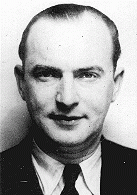
-
Yakov Biber
ID CardYakov was the youngest of four children born to a poor religious Jewish family in the village of Matsiov in Ukraine. Six years after Yakov was born, Matsiov was ceded to Poland. When Yakov was 14 his mother died and he had to quit school in order to work. Yakov was a Zionist and hoped to settle in Palestine [Yishuv]. 1933-39: In the Young Pioneers, a Zionist group, Yakov directed the dramatic productions the group put on to raise money for the Zionist cause. It was in the Young Pioneers that he met Chava,…
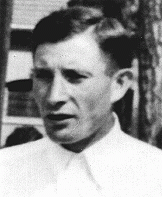
-
Manon Marliac
ID CardManon's Christian parents lived in Paris. Roger Marliac, her father, originally from a wealthy family, supported his family by selling produce at small marketplaces. Margarit, her mother (called Maguy by her friends), had a university degree in science. The family lived in a large apartment in a fashionable neighborhood near the Eiffel Tower. 1933-39: Manon, the Marliacs' second child, was born in 1937. She was 2 years old when her father was drafted into the French army as the country mobilized for a…
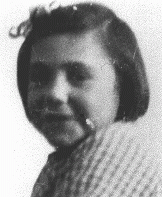
-
Selma Schwarzwald
ID CardBoth of Selma's Jewish parents, Daniel Schwarzwald and Laura Litwak, had been raised in the industrial city of Lvov. As many different nationalities lived in Lvov, Selma's mother and father could speak many languages--Polish, Russian, German and Yiddish. In running his successful lumber business, Daniel also occasionally used English. 1933-39: Selma's parents married in April 1935 and she was born two years later. Her father was afraid that there might be a war and wanted to move the family to safety in…
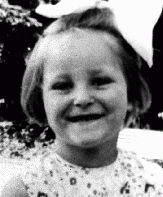
-
Leopold Page describes meeting German industrialist Oskar Schindler
Oral HistoryLeopold was a teacher in Krakow, Poland, when World War II began in 1939. While serving in the Polish army, he was captured by Germans. Leopold escaped from a prisoner-of-war transport. Soon after, he met the German industrialist Oskar Schindler. The two became friends. Leopold was forced to live in the Krakow ghetto. He later worked in Schindler's factory in Bruennlitz. He and the other Jews who worked there were treated relatively well and protected from the Nazis. After the war, Leopold moved to the…
